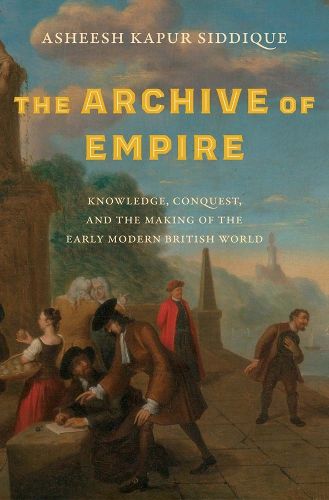Readings Newsletter
Become a Readings Member to make your shopping experience even easier.
Sign in or sign up for free!
You’re not far away from qualifying for FREE standard shipping within Australia
You’ve qualified for FREE standard shipping within Australia
The cart is loading…






How modern data-driven government originated in the creation and use of administrative archives in the British Empire
Over the span of two hundred years, Great Britain established, governed, lost, and reconstructed an empire that embraced three continents and two oceanic worlds. The British ruled this empire by correlating incoming information about the conduct of subjects and aliens in imperial spaces with norms of good governance developed in London. Officials derived these norms by studying the histories of government contained in the official records of both the state and corporations and located in repositories known as archives.
As the empire expanded in both the Americas and India, however, this system of political knowledge came to be regarded as inadequate in governing the non-English people who inhabited the lands over which the British asserted sovereignty. This posed a key problem for imperial officials: What kind of knowledge was required to govern an empire populated by a growing number of culturally different people? Using files, pens, and paper, the British defined the information order of the modern state as they debated answers to this question. In tracing the rise and deployment of archives in early modern British imperial rule, Asheesh Kapur Siddique uncovers the origins of our data-driven present.
$9.00 standard shipping within Australia
FREE standard shipping within Australia for orders over $100.00
Express & International shipping calculated at checkout
How modern data-driven government originated in the creation and use of administrative archives in the British Empire
Over the span of two hundred years, Great Britain established, governed, lost, and reconstructed an empire that embraced three continents and two oceanic worlds. The British ruled this empire by correlating incoming information about the conduct of subjects and aliens in imperial spaces with norms of good governance developed in London. Officials derived these norms by studying the histories of government contained in the official records of both the state and corporations and located in repositories known as archives.
As the empire expanded in both the Americas and India, however, this system of political knowledge came to be regarded as inadequate in governing the non-English people who inhabited the lands over which the British asserted sovereignty. This posed a key problem for imperial officials: What kind of knowledge was required to govern an empire populated by a growing number of culturally different people? Using files, pens, and paper, the British defined the information order of the modern state as they debated answers to this question. In tracing the rise and deployment of archives in early modern British imperial rule, Asheesh Kapur Siddique uncovers the origins of our data-driven present.